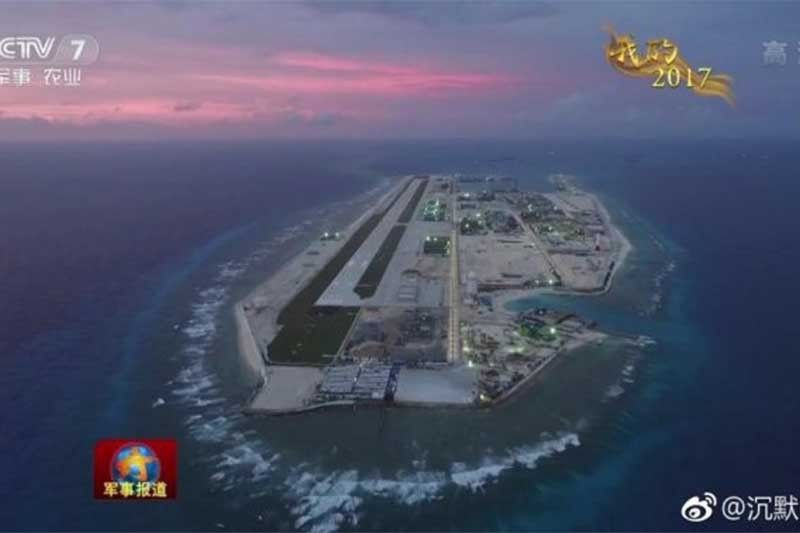Reinforcing a rules-based maritime order in the Indo-Pacific

Maritime security has become an important dimension of global security despite being frequently overlooked in coverage of international affairs.
The heightened competition in the maritime domain, as well as the emergence of various maritime security challenges have continued to elevate risks and put existing regional mechanisms under pressure.
Despite the fact that international agreements and treaties such as the United Nations Convention on the Law of the Sea (UNCLOS) govern the maritime domain, the nature of these security challenges necessitates multilateral cooperation among states to provide long-term and effective solutions.
Aside from territorial disputes and other traditional maritime security challenges, states are also confronted by non-traditional security challenges such as gray zone operations, transnational organized crime, IUU fishing and environmental degradation.
China has also continued to project its military power in the Indo-Pacific by fortifying its artificial islands in the South China Sea. Recent images taken by renowned photojournalist Ezra Acayan showed China’s newly developed military facilities, airfields and other structures in the Spratly Islands.
In order to address these security challenges, states in the Indo-Pacific must first take into account the relevance of reinforcing a rules-based maritime order, particularly in the context of developing a shared understanding of maritime security. This would make it easier for states to foster stronger cooperation while also supporting the initiatives of multilateral institutions such as the Association of Southeast Asian Nations (ASEAN).
It is also crucial for states to make use of the opportunities to maintain close cooperation with like-minded states including the United States, Australia, India and Japan, as well as members of the European Union (EU). By upholding international laws, treaties, and regional policies, the Indo-Pacific can also step up and prevent any unilateral attempts to change the status quo, especially in the maritime domain.
In the context of the Philippines, maritime security is no longer limited to pressing issues in the West Philippine Sea. China’s expansionist agenda and illicit activities in the country’s exclusive economic zone (EEZ) have seriously threatened not only the region’s peace and stability but also the livelihood and security of Filipino fishermen.
Risks in the disputed waters have also affected supply chains, tourism, and the country’s access to marine resources. Against this backdrop, there is a need for the Philippine government to prioritize maritime security and develop new strategies to enable the country to respond to these challenges. Upholding the 2016 arbitral ruling and the UNCLOS are also significant steps toward ensuring peace and stability in the West Philippine Sea.
During the 10th ASEAN-US Summit in Cambodia, President Ferdinand Marcos Jr. stressed the importance of strengthening the cooperation between the ASEAN and the United States, particularly in addressing maritime security and transnational crime.
He said that members of the ASEAN fully support the regional projects and initiatives of the United States to address transnational crime, terrorism and other maritime security challenges. President Marcos Jr. also highlighted the importance of the “unwavering support” of the Quadrilateral Security Dialogue (QUAD) for ASEAN unity and centrality.
In a recent interview, Prof. Victor Andres “Dindo” Manhit, founder and CEO of the Stratbase Group, echoed the need for the Philippines to maximize its alliances and strategic partnerships, urging the Philippine government to refrain from focusing too much on the strategic competition between the United States and China.
He also stressed the importance of strengthening and modernizing the Philippine Navy as well as government agencies managing civil maritime security issues such as the Philippine Coast Guard (PCG). He said that by adhering to a rules-based maritime order, countries like the Philippines can stand up to major powers like China.
The statement of Manhit is also in line with the results of the recent Pulse Asia survey commissioned by the Stratbase ADR Institute which revealed that 89% of Filipinos agree that the Philippine government must assert the country’s rights over the West Philippine Sea as stipulated in the 2016 ruling of the Permanent Court of Arbitration. Furthermore, 90% say that the Philippine government must invest in the capability of the Philippine Navy and the Philippine Coast Guard to protect the country’s territory and marine resources.
In light of this, the Stratbase Group will gather key government officials, members of the diplomatic community, security experts, and civil society organizations in a two-day conference on November 21 and 22, 2022 entitled “Pilipinas Conference 2022: Onward to New Beginnings: Sustaining and Improving Philippine Development.” The annual conference will feature a high-level session on multilateral cooperation, maritime security and the increasing importance of alliances and strategic partnerships.
In the context of a rules-based international order, Jesus Gary Domingo, undersecretary for Civilian Security and Consular Affairs of the Department of Foreign Affairs, will discuss how government shall uphold civilian security and shall interact with geopolitical experts to explore strategies that would address challenges such as transnational crimes and the how interagency cooperation should be institutionalized to strengthen maritime security capacities.
The US-Philippine alliance and the prospects of strengthening security and economic diplomacy will be the focus of the second panel where Philippine and international analysts will provide perspectives and expert guidance for the foreign policy directions of the Marcos Jr. administration.
The messages of H.E. MaryKay Carlson, Ambassador, US Embassy in the Philippines and Amb. Jose Manuel “Babe” Romualdez, Philippine Ambassador to the US. will be one of the highlights of the session.
Given the current regional security architecture in the Indo-Pacific, it is important for countries like the Philippines to analyze and understand these critical issues to further contribute to the promotion of shared democratic values and a rules-based maritime order.
One of the goals of the Stratbase ADR Institute is to significantly contribute and elevate the discussion on the West Philippine Sea as well as on the growing importance of maritime security, particularly in the context of an increasingly multipolar Indo-Pacific.
Jikko Alfonso Puzon is a research manager at think tank Stratbase ADR Institute.
- Latest




























